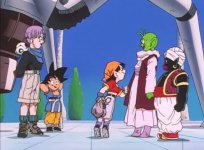It's not so much about races being a 1:1 analogue, but rather the tropes and situations that fantasy literature (or adventure or sci-fi fiction) use in building their worlds, and the fact that those worlds, no matter how fantastical, are always in some relation to historical context of the author(s). What dnd has often done is very lazy world-building where it just picks up and reuses these tropes, making the PCs into mercenaries operating on a borderland (i.e. a Western where the context is settler colonialism) or as agents of good beating back the forces of evil (i.e. as pseudo-medieval crusaders).
I don't think the solution is to try to put up some disclaimer saying "this is fantasy" as if it were not inspired by real history or even the genre conventions of fantasy that have been articulated up to this point. Rather, do what science fiction does, and take world building seriously. Create worlds with nuance and with characters and societies that have depth and complexity.
Are you saying that all D&D worlds are "lazy worldbuilding," or just certain ones? Or just the default assumptions?
What you call "lazy world-building," I call creating a context for adventure fantasy, one that suited the purposes of Gygax et al in the 70s. The game has expanded since, and continues to change and offer new approaches to play. But it is just a game, and I don't think you can so easily port over literature-style world-building to a game--let alone accurately simulate reality--or that you'd even want to. Individual DMs can do that to their best ability, and I'd like to see WotC offer different approaches (which they've done and are doing through their different settings), but your criticism seems unrealistic in that you seem to be asking WotC to deep their world-building to a point that is unnecessary for the needs of most gamers.
The clarification you describe is utterly meaningless, though.
Those associations and correlations don’t exist or not by virtue of there being such a clarification or not.
I think you see it that way because it doesn't address the problem in the way that you want it to, which is to acknowledge that the problem exists--whether or not it actually does, or to whatever degree it does, which removes the
act of association from the matrix--and then fix the problem according to the ideology of those who make that association.
I am saying that is unnecessary, that there are better ways to address the problem, such as encouraging positive things that most everyone agrees on, like inclusion and diversity, and by differentiating race and culture and expanding the way cultures are presented.
And further, part of the problem is an act of association that is taken as absolute and intrinsic to the phenomena itself (namely, orcs), which can be at least partially be addressed by WotC, the publishers of orcs and other such "problematic" ideas, saying "No, these are fantasy creatures and not meant to represent anything from the real world."
They don't have to stop there, of course, and can present a diversity of orc cultures that are specific to campaign worlds. But I think it is the wrong direction to crystalize the association that orcs are stand-ins for indigenous or people of color in our world.
What concerns me is how those who make that association don't even question or examine it. It clicks for them, and then they go with it as fact and it becomes dogma. But what is in the act of association? It is an act of interpretation, based on a hermeneutical lens. Should we not, at least, expand our range of hermeneutical lenses so that we're not seeing everything from a singular perspective? And further, why does one see it that way, and is that lens of perception necessary or even helpful in any way? In some cases it might be, and allows us to tease out and address things that are clearly problematic (e.g. drow are black skinned because they were cursed), but unfortunately it also leads to more extreme measures by seeing everything from a particular hermeneutical lens.
Again, at the very least, we should address the issue with
multiple perspectives, rather than just reducing it to one, as if there is only one way to see it.
If Volo’s had such a clarification it would have absolutely no impact whatsoever on the problematic nature of the depiction of Orcs. It would be a bad joke, sitting there in the same book as passages about half-tamed savages being a danger to their civilized neighbors even when raised alongside them.
Likewise, if the next Volos Guide presented Orcs as not evil when raised by elves, no clarification you could possibly make would mean a single damn thing.
At this point, you seem to be willfully ignoring what I mean by "orcs raised by elves." Again, I did not suggest that they say that in the books. I used that an example of how race and culture are different, and that WotC should clarify that no race is inherently evil as a biological species, but cultures can be.
.



